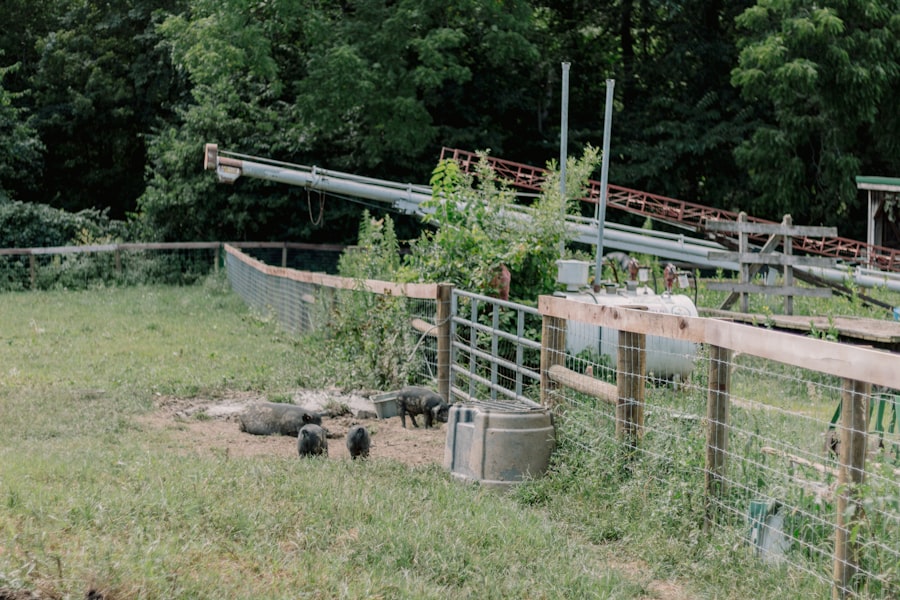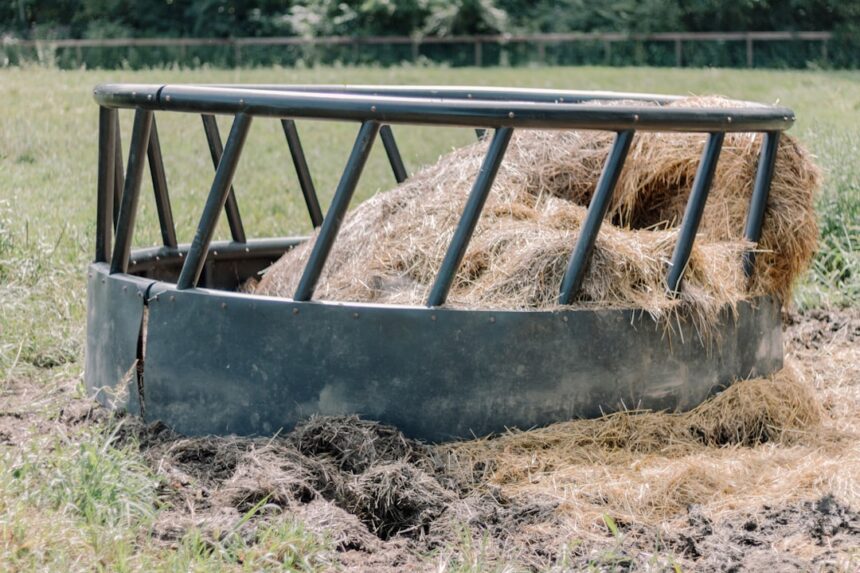As I reflect on the landscape of agriculture today, I am increasingly aware of the pivotal role that family farms play in promoting sustainable practices. These small-scale farms, often passed down through generations, embody a deep connection to the land and a commitment to stewardship that is essential for the health of our ecosystems. Family farms prioritize sustainable methods, such as crop rotation, organic farming, and integrated pest management, which not only enhance soil health but also reduce reliance on chemical inputs.
This holistic approach to farming fosters biodiversity and contributes to the resilience of our food systems. Moreover, family farms are often more adaptable to local conditions than larger industrial operations. Their intimate knowledge of the land allows them to implement practices that are tailored to their specific environment, which can lead to more sustainable outcomes.
By focusing on local markets and community-supported agriculture, family farms help to create a more resilient food system that is less vulnerable to global market fluctuations. In this way, they serve as a vital link between consumers and the food they eat, promoting transparency and trust in the agricultural process.
Key Takeaways
- Family farms play a crucial role in sustainable agriculture by promoting biodiversity, preserving traditional farming practices, and ensuring food security for future generations.
- Family farms face numerous challenges in the modern era, including access to resources, market competition, and climate change impacts, which threaten their sustainability and livelihoods.
- Family farms are essential for preserving biodiversity by maintaining diverse crop varieties, traditional farming methods, and indigenous knowledge that contribute to a resilient and adaptable agricultural system.
- Supporting family farms brings economic benefits to local communities, such as job creation, income generation, and the promotion of local food systems, contributing to a more sustainable and equitable economy.
- Family farming practices have a positive environmental impact, including soil conservation, water management, and reduced use of chemical inputs, contributing to the overall health of ecosystems and natural resources.
The Challenges Faced by Family Farms in the Modern Era
Despite their importance, family farms face a myriad of challenges in today’s rapidly changing agricultural landscape. One of the most pressing issues is the economic pressure exerted by large agribusinesses. These corporations often benefit from economies of scale that allow them to produce food at lower costs, making it difficult for family farms to compete.
As I observe this trend, I see many small farmers struggling to maintain their livelihoods, leading to a decline in the number of family-owned farms across the country. Additionally, access to resources such as land, water, and capital poses significant hurdles for family farmers. Rising land prices and competition from industrial agriculture make it increasingly difficult for new farmers to enter the market.
Furthermore, climate change exacerbates these challenges by introducing unpredictable weather patterns and extreme events that can devastate crops and livestock. As I consider these factors, it becomes clear that without targeted support and intervention, family farms may continue to dwindle, threatening the very fabric of sustainable agriculture.
The Role of Family Farms in Preserving Biodiversity

Family farms are not just important for their contributions to sustainable agriculture; they also play a crucial role in preserving biodiversity. As I walk through these farms, I am often struck by the variety of crops and livestock that thrive in these settings. Unlike monoculture practices prevalent in industrial farming, family farms typically cultivate a diverse array of plants and animals.
This diversity not only enhances the resilience of the farm but also supports local ecosystems by providing habitats for various species. Moreover, family farmers often engage in traditional farming practices that have been honed over generations. These practices include heirloom varieties of crops that are well-suited to local conditions and have unique flavors and nutritional profiles.
By maintaining these diverse genetic resources, family farms contribute to global food security and help safeguard against the loss of biodiversity. As I reflect on this aspect of family farming, I recognize that their commitment to preserving biodiversity is essential for ensuring a sustainable future for agriculture.
The Economic Benefits of Supporting Family Farms
| Metrics | Data |
|---|---|
| Employment | Family farms provide jobs for millions of people worldwide. |
| Local Economy | Supporting family farms helps to stimulate local economies and create a multiplier effect. |
| Food Security | Family farms contribute to food security by producing a diverse range of crops and livestock. |
| Environmental Benefits | Family farms often use sustainable farming practices, which can have positive environmental impacts. |
Supporting family farms is not just an ethical choice; it also brings significant economic benefits to local communities. When I purchase produce from a family farm, I am not only investing in high-quality food but also contributing to the local economy. Family farms tend to keep more money circulating within their communities compared to large agribusinesses, which often export profits elsewhere.
This localized economic activity can lead to job creation and increased demand for local goods and services. Furthermore, family farms often engage in direct-to-consumer sales through farmers’ markets and community-supported agriculture (CSA) programs. These models not only provide consumers with fresh, seasonal produce but also allow farmers to receive fair prices for their products.
As I participate in these markets, I witness firsthand the strong relationships that develop between farmers and consumers, fostering a sense of community and shared responsibility for supporting local agriculture.
The Environmental Impact of Family Farming Practices
The environmental impact of family farming practices is another critical aspect that deserves attention. As I observe the methods employed by family farmers, I am often impressed by their commitment to environmentally friendly practices. Many family farms utilize organic farming techniques that minimize chemical inputs and promote soil health.
By avoiding synthetic fertilizers and pesticides, these farmers contribute to cleaner water sources and healthier ecosystems. Additionally, family farms often prioritize regenerative practices that enhance soil fertility and sequester carbon. Techniques such as cover cropping, agroforestry, and rotational grazing not only improve soil structure but also help mitigate climate change by capturing carbon dioxide from the atmosphere.
As I consider the potential of these practices, it becomes evident that family farms can serve as powerful allies in the fight against environmental degradation.
Strategies for Reclaiming and Supporting Family Farms

To ensure the survival of family farms, it is essential to implement strategies that reclaim and support their vital role in agriculture. One approach is to promote policies that provide financial assistance and resources for small farmers. This could include grants for sustainable farming practices, access to low-interest loans, or subsidies for organic certification.
As I think about these possibilities, I recognize that targeted support can empower family farmers to adopt innovative practices while remaining economically viable. Another strategy involves fostering community engagement and awareness around the importance of family farming. By educating consumers about the benefits of supporting local farms, we can create a stronger demand for their products.
Initiatives such as farm-to-table programs in schools and restaurants can help bridge the gap between consumers and producers while promoting a culture of sustainability. As I engage with my community on these issues, I feel a sense of hope that together we can create a more supportive environment for family farms.
The Role of Government Policies in Promoting Family Farming
Government policies play a crucial role in shaping the future of family farming. As I analyze current agricultural policies, I see both opportunities and challenges for small farmers. On one hand, there are programs designed to support sustainable agriculture and provide resources for family farms; on the other hand, many policies tend to favor large agribusinesses at the expense of small-scale operations.
It is essential for policymakers to recognize the value of family farms and implement measures that level the playing field. For instance, creating incentives for conservation practices or funding research on sustainable farming techniques can significantly benefit family farmers. Additionally, policies that promote fair trade practices and protect farmers’ rights can help ensure that they receive equitable compensation for their labor.
As I advocate for these changes, I am reminded of the power of collective action in influencing policy decisions that support family farming.
The Potential of Agroecology in Family Farming
Agroecology presents an exciting opportunity for family farms to enhance their sustainability while addressing some of the challenges they face. This holistic approach integrates ecological principles into agricultural practices, emphasizing biodiversity, soil health, and social equity. As I explore agroecological methods on various family farms, I am inspired by their potential to create resilient food systems that prioritize both environmental health and community well-being.
By adopting agroecological practices such as intercropping, agroforestry, and organic pest management, family farmers can improve their productivity while reducing their environmental footprint. These methods not only enhance soil fertility but also promote ecosystem services such as pollination and pest control. As I witness the success stories emerging from agroecological initiatives, I am filled with optimism about the future of family farming as a cornerstone of sustainable agriculture.
The Social and Cultural Importance of Family Farms
Family farms are not just economic entities; they are also deeply rooted in social and cultural traditions. As I visit different farming communities, I am struck by the stories and histories that shape each farm’s identity. These farms often serve as gathering places for families and friends, fostering connections that transcend generations.
The cultural significance of family farming is evident in local festivals celebrating harvests or traditional foodways that highlight regional cuisines. Moreover, family farms contribute to preserving cultural heritage by maintaining traditional farming practices and heirloom varieties of crops. As I engage with farmers who share their stories and knowledge, I realize how vital these connections are for fostering a sense of belonging within communities.
By supporting family farms, we are not only investing in sustainable agriculture but also honoring the rich tapestry of cultural diversity that defines our food systems.
The Resilience of Family Farms in the Face of Climate Change
In an era marked by climate change, the resilience of family farms is more important than ever. As I observe how these farmers adapt to shifting weather patterns and extreme events, I am inspired by their ingenuity and determination. Many family farmers are implementing innovative strategies such as water conservation techniques, drought-resistant crops, and diversified planting schedules to mitigate the impacts of climate change on their operations.
Furthermore, family farms often serve as vital sources of knowledge regarding local ecosystems and climate adaptation strategies. Their intimate understanding of the land allows them to respond effectively to environmental changes while maintaining sustainable practices. As I reflect on this resilience, it becomes clear that supporting family farms is essential not only for preserving agricultural diversity but also for building adaptive capacity in our food systems.
The Future of Family Farming and Sustainable Agriculture
Looking ahead, I am hopeful about the future of family farming within the context of sustainable agriculture. While challenges remain, there is a growing recognition of the importance of small-scale farmers in addressing global food security and environmental sustainability. As consumers increasingly seek out locally sourced products and prioritize sustainability in their purchasing decisions, family farms are well-positioned to thrive.
From precision agriculture tools that optimize resource use to online platforms connecting farmers directly with consumers, innovation can empower family farms to adapt and flourish in an ever-changing landscape. As I envision this future, I am reminded that by supporting family farms today, we are investing in a more sustainable tomorrow for generations to come.
In the journey of reclaiming the family farm, many individuals face a myriad of challenges, from navigating modern agricultural practices to understanding the complexities of land ownership. An insightful article that delves into these issues is available on “Am I Wrong Here,” which provides a comprehensive look at the dynamics of family farming in today’s world. For those interested in exploring this topic further, you can read more about it by visiting this




